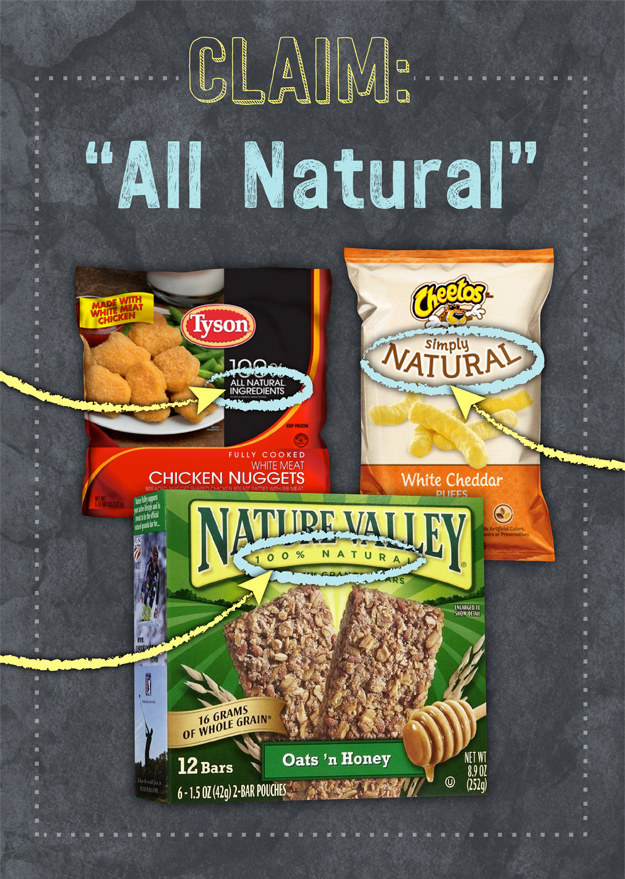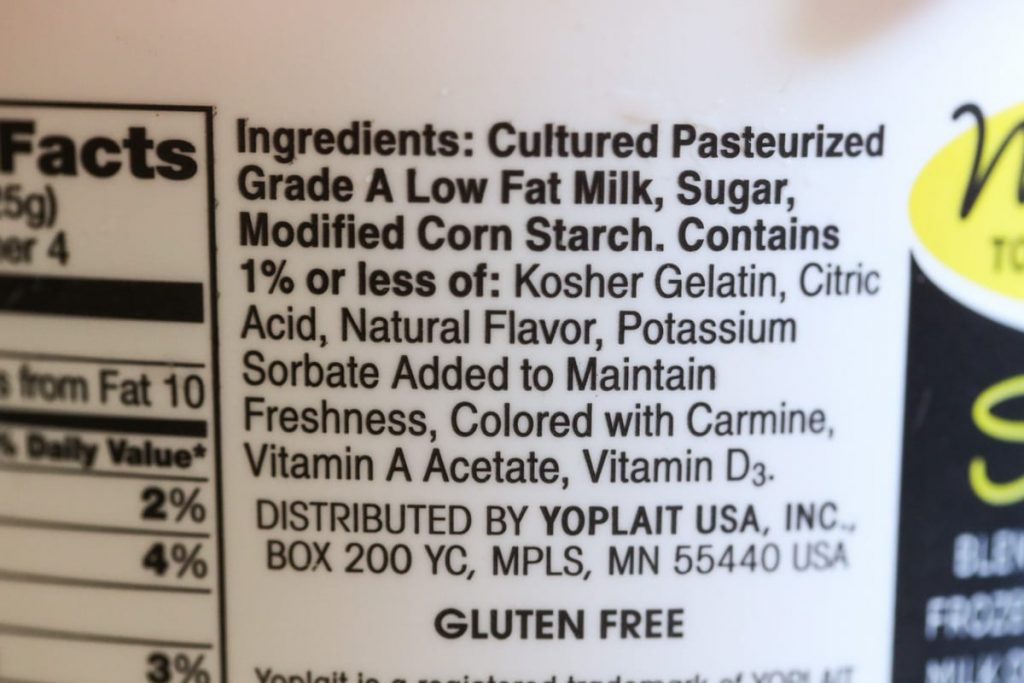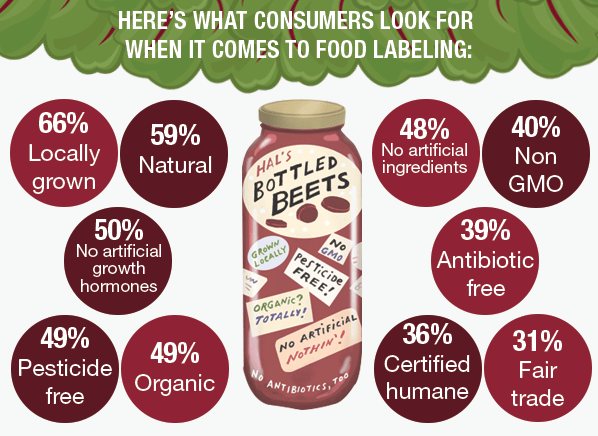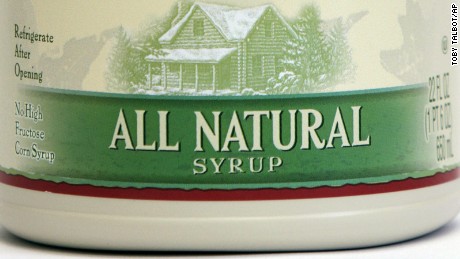45 natural claims on food labels
A Guide to FDA Regulation of Food Labeling Claims Among the FDA-regulated claims commonly declared on food labels are nutrient-content claims, health claims, qualified health claims and structure/function claims. Additionally, FDA has authority over claims related to gluten content, genetically modified organisms (GMOs) and "natural." It is critical that companies familiarize themselves with ... What's in a Claim? Would a Food Not Labeled "Natural" Taste as Sweet? On March 11, 2011, Shemshad Food Products, Inc. (Shemshad; Los Angeles, California) received a warning letter from FDA in which the agency stated that Shemshad's Lime Juice Natural product was misbranded owing to a misleading label. FDA observed that the ingredient statement listed a synthetic chemical preservative, sodium benzoate 1%, and ...
What Does All Natural on a Food Label Mean? This means an ultra-processed snack food labelled 'made with natural flavours', may be construed as a better, healthier, or safer choice, simply because of the claim 'natural'. Yet, in reality this 'natural' snack food doesn't offer any advantages in terms of health or safety over its ultra-processed competitor who doesn't make the same claim.

Natural claims on food labels
Healthy, Natural, and other Clean Label Claims | Registrar Food manufacturers wishing to ride the wave of the clean label movement should take care to ensure claims made about their products are appropriate. Even in the absence of a regulation, FDA issues warning letters to companies that they deem are making false and misleading statements regarding claims such as "natural" and enforces those for ... Why Lawsuits Over 'Misleading' Food Labels Are Surging - The New York Times Inspectors with the Food Safety and Inspection Service, the U.S.D.A. agency charged with verifying labeling claims, only have jurisdiction over slaughterhouses and meat processing plants, not the... Use of the Term "Natural" in the Labeling of Human Food Products ... the definition of "natural claims" in the fsis's food standards and labeling policy book, in relevant part, states that the term "natural" may be used on labeling for meat products and poultry products if the applicant for such labeling demonstrates that: (1) the product does not contain any artificial flavor or flavoring, coloring ingredient, …
Natural claims on food labels. 13 Misleading Food Label Claims and How Not to Be Tricked - Sentient Media However, when the term appears on packaging consumers tend to assume that the food item is of higher quality or healthier than non-organic alternatives. 13. Label Says "Zero Trans Fat" Foods that claim to contain zero trans fat can actually contain up to 0.5 grams per serving. Label Claims for Food & Dietary Supplements | FDA Among the claims that can be used on food and dietary supplement labels are three categories of claims that are defined by statute and/or FDA regulations: health claims, nutrient content claims,... Food labelling and packaging: Nutrition, health claims and supplement ... You have to follow certain rules if you want to make a nutrition claim (for example, low fat) or a health claim (for example, calcium helps maintain normal bones). You cannot claim or imply that... Health Claims on Food Labels - Consumer Reports Health Claims on Food Labels: What's True, What Isn't A guide to what 'natural,' 'multigrain,' 'free-range,' and more really mean By Sally Wadyka January 07, 2019 R eading the information on food...
Food Label Claims - Agriculture Food Label Claims DOWNLOAD FILE April 6, 2021 - Author: Mary Dunckel, Jeannine Schweihofer & Ashley Kuschel, MSU Extension Food Label Requirements All information on food labels must not be false or misleading. Product name/statement of identity Net weight Manufacturer's name, city and state Nutrition facts (some exceptions) Natural Claims: The Case for Clarity - FONA • 45% read the product label to determine if the natural claim on a product meets THEIR personal definition of natural. • Almost 48% of consumers would like to see companies stop using the natural claim and to start using single-attribute claims such as "no preservatives." Pushback on Natural The 13 Most Misleading Food Label Claims - Naked Food Magazine 7. "Kosher" does not mean non-GMO. Genetically engineered ingredients are openly allowed in Kosher-certified foods. The Kosher certification does not involve testing for GMOs, and Kosher certifications are routinely found on foods containing GMOs. 8. "All Natural" doesn't mean anything at all. Which food labeling claims put you most at risk of a class action ... Find out more about the hot button issues in food litigation, from Prop 65 to natural claims at the American Conference Institute (ACI) food law conference in Chicago on April 23-24. Get the full ...
Natural - Consumer Reports Overview: CR surveys show that most consumers think that the claim "natural" on a food package should mean that the product contains no artificial ingredients, that it was produced without... Are your "all natural" claims all accurate? - Federal Trade Commission April 12, 2016. If companies market their products as "all natural" or "100% natural," consumers have a right to take them at their word. That's the message of four proposed FTC settlements and one just-issued administrative complaint challenging the allegedly deceptive use of those phrases in ads for skincare products, shampoos and ... 8 misleading food marketing labels | AGDAILY Here are 8 of the most common misleading food marketing claims: 1. No nitrites or nitrates added. ... or has been added to, a food that would not normally be expected to be in that food." Although a "natural" label usually implies healthier and/or safer, that's just not the case. Whether a chemical is natural or synthetic tells you ... Natural Food Claims Are Disappearing From Food and Beverage Labels ... Grocery stores are littered with food products that claim to be "natural" or "all natural" but actually contain artificial ingredients. But lately, the natural food labels have started to disappear, as MSN Money reports. Food and beverages companies are "quietly removing these claims from packages amid lawsuits challenging the "naturalness" of everything from potato chips […]
Natural and Organic Label Claims - Agriculture Natural and Organic label claims are used on food products to describe how they were grown, raised and/or processed. Two federal government agencies oversee the production and labeling of food in the United States to ensure that the label claims are truthful and not misleading.
Defining "Natural": Class Actions against Food Labels Lawsuits claim that disodium dihydrogen pyrophosphate is an odorless, industrial synthetic food preservative used to help retain a food's "natural" color. Disodium dihydrogen pyrophosphate is used in the leather and slaughter industries to remove stains from animal hides, as well as hair and feathers from poultry and hogs.
The Pitfalls of Making Free Claims in Food Labeling | Natural Products ... FDA's policy on natural allows the claim only when the food contains no added colors, artificial flavors or other synthetic substances. This implied "free" claim is based on which ingredients are used in the product and does not require analysis showing zero. Natural claims must be used carefully.
Regulating health claims on food labels using nutrient profiling: what ... Objective: Proposed Australian regulation of claims on food labels includes requirements for products carrying a health claim to meet nutrient profiling criteria. This would not apply to nutrition content claims. The present study investigated the number and healthiness of products carrying claims and the impact of the proposed regulation.

The Truth About Food Label Claims: All Natural, Gluten Free, Organic, Whole Grain, Calorie Free ...
FDA "Natural" Food Labeling | FDA Compliance Made Easy On November 12, the U.S. Food & Drug Administration ("FDA") announced that it is soliciting public comments on how the Agency should define the term "natural" and regulate its use in food labeling. The FDA has engaged the public's input after receiving two Citizen Petitions requesting the agency take action on establishing a formal ...

5 Food-Label Claims Explained: All-Natural, Gluten-Free, Organic, Whole Grain, Calorie-Free ...
Method of production claims on food labels - Canadian Food Inspection ... while the guidance provided for natural claims would not normally recognize a food to be natural if it contains added vitamins or additives (for example, milk with added vitamins a and d, enriched flour), companies would clarify, using evidence-based measures, the meaning of the claim and demonstrate how this interpretation still meets the …
Natural Label Claims - Canadian Food Business DEFINING "NATURAL" The Canadian Food Inspection Agency (CFIA) has issued guidance to industry on the use of natural and, more specifically, on how the prohibition against false and misleading labeling and advertising will apply in the case of natural claims.
Natural Label On Food Products - LablCalc - LabelCalc Even though this FDA definition isn't formal, misleading uses of the term "natural" have resulted in multiple lawsuits in which food manufacturers have been sued. In 2011, a class-action lawsuit was filed against Kelloggs' Kashi brand, which adorned their labels with claims including "all natural" and "nothing artificial.".
Legal Guide to Health Claims on Food | Law@Dayton Food Label Lawsuit Case Studies Foods that have high sugar and fat content but call themselves "healthy" or those that claim to be "natural" but contain artificial ingredients have become hot areas for litigation. Neither "healthy" nor "natural" are regulated terms.
Use of the Term Natural on Food Labeling | FDA We also note that some Federal courts, as a result of litigation between private parties, have requested administrative determinations from the FDA regarding whether food products containing...
Use of the Term "Natural" in the Labeling of Human Food Products ... the definition of "natural claims" in the fsis's food standards and labeling policy book, in relevant part, states that the term "natural" may be used on labeling for meat products and poultry products if the applicant for such labeling demonstrates that: (1) the product does not contain any artificial flavor or flavoring, coloring ingredient, …
Why Lawsuits Over 'Misleading' Food Labels Are Surging - The New York Times Inspectors with the Food Safety and Inspection Service, the U.S.D.A. agency charged with verifying labeling claims, only have jurisdiction over slaughterhouses and meat processing plants, not the...
Healthy, Natural, and other Clean Label Claims | Registrar Food manufacturers wishing to ride the wave of the clean label movement should take care to ensure claims made about their products are appropriate. Even in the absence of a regulation, FDA issues warning letters to companies that they deem are making false and misleading statements regarding claims such as "natural" and enforces those for ...














Post a Comment for "45 natural claims on food labels"